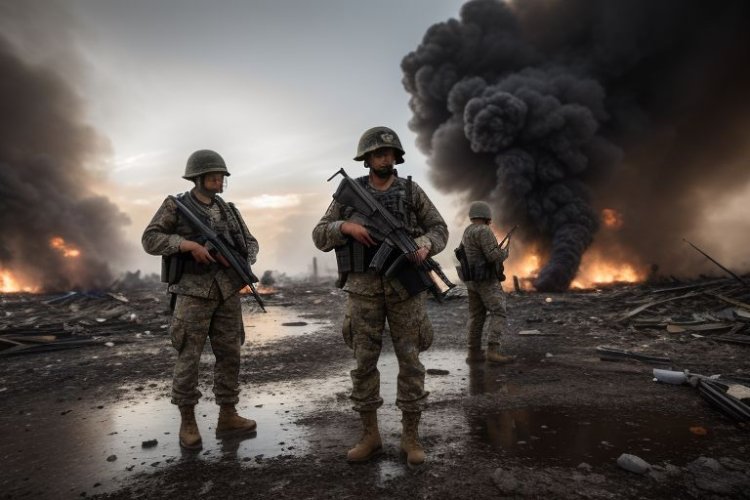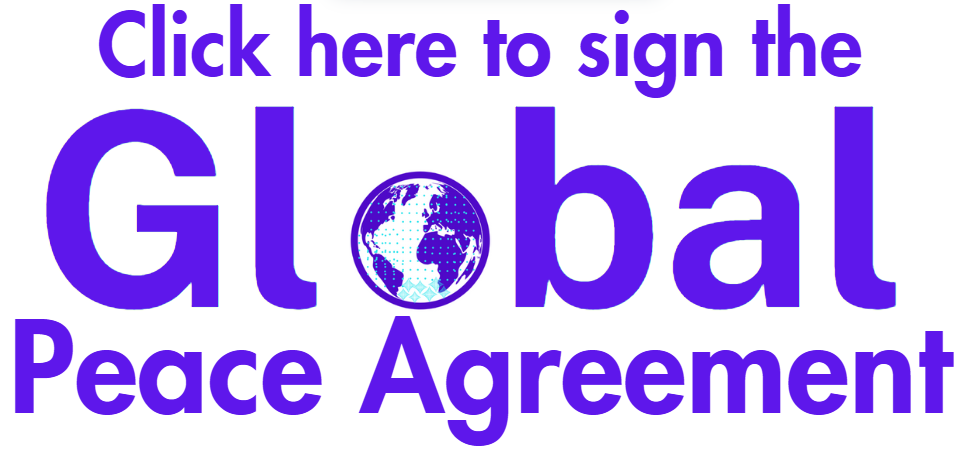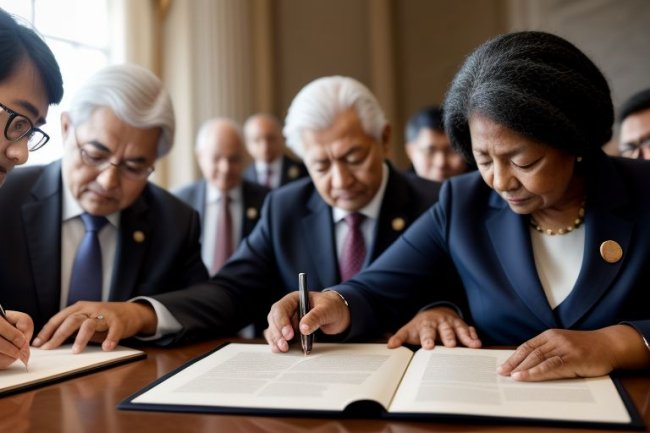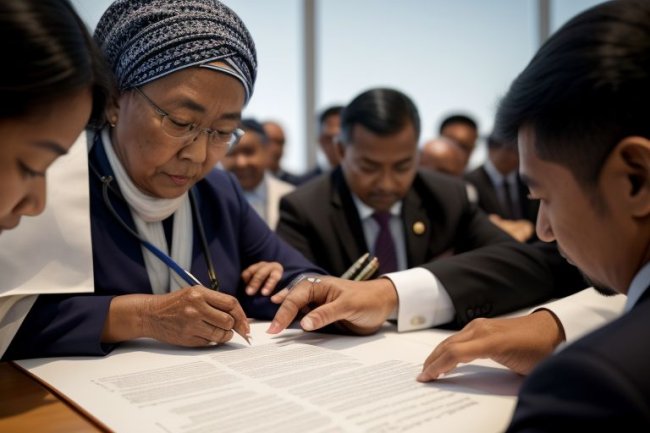THE SOCIO-ECONOMIC CONSEQUENCES OF WAR pt 2

Displacement And Refugee Crises
War inflicts profound and enduring consequences that extend beyond the immediate combat zone. Among the most devastating impacts of armed conflict are the displacement of individuals and the subsequent emergence of refugee crises. Forced migration due to war tears apart communities, disrupts social structures and causes immense human suffering. Understanding the magnitude of these crises is crucial for striving towards effective solutions, supporting humanitarian efforts, and advocating for the rights and well-being of displaced populations. Displacement occurs when individuals and communities are forcefully uprooted from their homes and habitual places of residence as a result of conflict, violence, or persecution. This includes internal displacement within a country’s borders and cross-border displacement, where individuals seek refuge in neighboring countries or beyond, forming refugee populations. War’s causes and dynamics are complex, varying across conflicts. Root causes include armed conflict, political instability, persecution, ethnic or religious tensions, and human rights abuses.
The actions of armed actors, power imbalances, and strategic objectives further shape the dynamics of displacement. Parties involved in war may employ displacement as a deliberate tactic to weaken opposition, control territory, or exploit resources. Civilians often become targets of violence, resulting in forced displacement to survive. Displacement presents significant humanitarian challenges that necessitate immediate and comprehensive responses. Displaced individuals face urgent needs, such as shelter, clean water, food, healthcare, and protection from violence and exploitation. Providing humanitarian assistance in conflict zones is extremely challenging due to insecurity, limited access, and resource constraints. Women, children, and marginalized groups are particularly vulnerable to physical and sexual violence, exploitation, and human trafficking. The breakdown of social structures and support networks exacerbates these vulnerabilities, leaving individuals without adequate protection. Protracted displacement further complicates finding durable solutions. International law is crucial in protecting and assisting refugees and displaced populations. The 1951 Refugee Convention, along with its 1967 Protocol, establishes the rights and responsibilities of states concerning refugees, encompassing the principle of non-refoulement. The United Nations High Commissioner for Refugees (UNHCR) works with governments, NGOs, and stakeholders to uphold the rights and well-being of refugees, seeking durable solutions through voluntary repatriation, local integration, and resettlement. Managing displacement is a complex task that requires cooperation between governments, humanitarian organizations, and stakeholders.
Challenges include:
• Ensuring the safety and security of displaced populations.
• Providing access to essential services.
• Addressing psychosocial needs.
• Finding durable solutions for long-term displacement.
Humanitarian organizations establish camps or settlements, provide emergency aid, and deliver essential services like healthcare, education, and clean water. Adequate funding, logistics, and coordination are crucial for meeting immediate needs. Long-term solutions involve promoting peace and stability, addressing root causes, and supporting post-conflict reconstruction and development. Efforts should focus on peacebuilding, conflict resolution, and socio-economic equality to prevent future displacement and promote self-reliance. Supporting displaced populations goes beyond immediate needs, encompassing rights, empowerment, and integration. Access to quality education offers hope and a sense of normalcy for displaced children and youth, promoting socialization and a pathway to a better future. Healthcare services, including mental health support, address displaced populations’ physical and psychosocial well-being. Promoting social and economic integration is vital for long-term stability and self- reliance. Inclusive policies, employment opportunities, and social cohesion efforts between displaced and host communities foster understanding, tolerance, and mutual respect.
Addressing displacement and refugee crises necessitates a coordinated international response. Governments, intergovernmental organizations, NGOs, and civil society support affected populations, advocate for their rights, and find durable solutions. International cooperation provides financial resources, technical expertise, and political support to countries hosting large numbers of displaced populations. Advocacy efforts generate empathy, mobilize support, and combat xenophobia and discrimination. The international community’s commitment is essential for protecting and promoting the rights and well-being of displaced populations.
Displacement and refugee crises resulting from war inflict severe and lasting consequences on individuals, communities, and societies. Forced migration disrupts lives, creates vulnerabilities, and necessitates effective responses from the international community. Understanding the causes, challenges, and potential solutions surrounding displacement is crucial for promoting peace, supporting humanitarian efforts, and ensuring the rights and well-being of displaced populations.




















